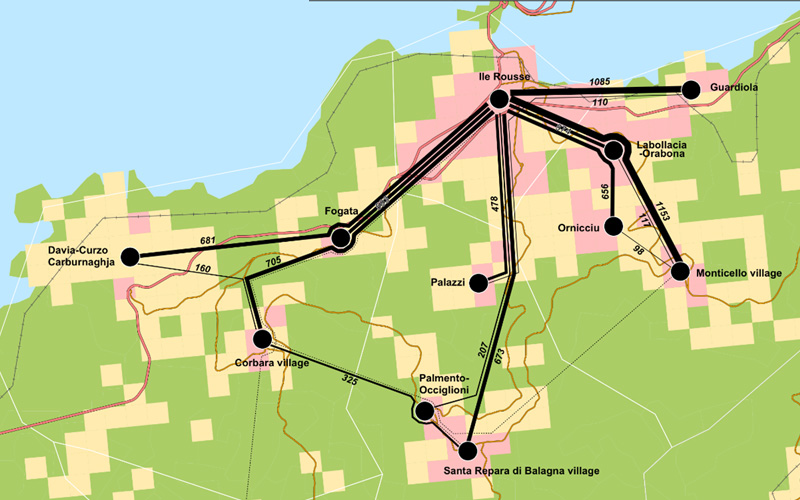PERIOD
2014 – 2015
THE STUDY
Opportunity study of the creation of an ecological collective transport system in the Île Rousse residential district
COMMISSIONING AUTHORITY
CCBVIR
EXECUTION
Transamo
BVA (survey)

The grouping of municipalities in the Île Rousse residential area, which is highly polarised by Île Rousse itself, is made up of five localities without any means of collective transport offering an alternative to cars or a mobility solution for the more fragile inhabitants.
Transamo was appointed to study the timeliness and the feasibility of creating an ecological collective transport system in the residential district. The goal was to provide the CCBVIR with all the decision-support input (choice of the destinations, the level of service, the management mode, etc.) required to produce a costed scenario enabling it to obtain a delegation of responsibility for transport in the district from the departmental council.
The mission comprised three phases:
- a diagnostic of the territory, including the execution and use of a household survey of travel in the district (300 telephone interviews) and the construction of service scenarios adapted to the inhabitants’ needs,
- the selection and further examination of the chosen scenario: level of service, investment and operating costs, multi-criteria analysis for the choice of rolling stock and the mode of management, etc.,
- Phase 3 (conditional): support in the start-up phase (drafting of the tender enquiry, communications).
The chosen scenario includes two small regular lines, one of which is upgraded in the summer to service destinations that generate tourist activity.
In-depth analyses were made of this scenario to formulate recommendations on the following points:
- location and integration of stops,
- the choice of rolling stock,
- operations (km covered, timetables and level of service, etc.),
- pricing and ticketing,
- the costing of the scenario: operating and investment costs, estimated income,
- ecological impact,
- choice of the management mode.
The CCBVIR has now the information required to take responsibility for the transport of its territory.